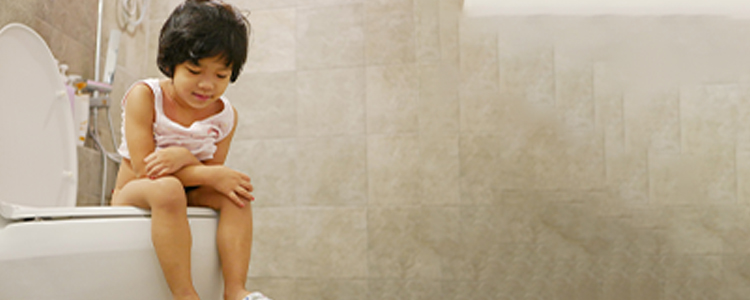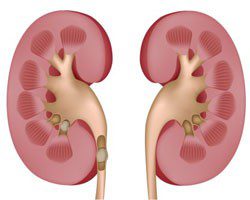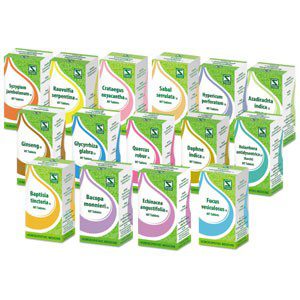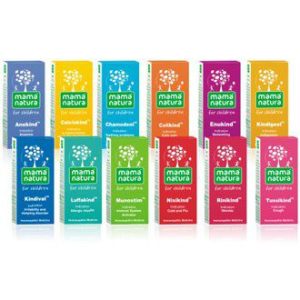
How to prevent and manage constipation in kids: Tips for Parents
- Dr. Aditi Sharma
- No Comments

Constipation in children refers to infrequent bowel movements or difficulty passing stools. Constipation is a common digestive issue in children and can cause distress to both the children and their parents. Through this article we will know important tips to prevent and manage the menace of this digestive problem in kids.
Table of Contents
ToggleWhat are the signs and symptoms of constipation?
Signs and symptoms are:
- Having less than three bowel movements in a week.
- Having hard, lumpy or dry stools.
- Straining hard to pass stools.
- Pain while passing stools.
- Sensation as if the bowels are not completely empty.
- Distension of the abdomen with pain or discomfort.
- Nausea with loss of appetite
- In rare cases, joint and muscle aches or sluggishness.
Also Read Constipation In Children: Causes And Treatment
What are the causes of constipation in children?
1. Dietary Factors
- Low fibre intake
- Inadequate fluid intake
- High-fat or processed foods
- Too much intake of milk and milk products
2. Lifestyle Factors
- Sedentary lifestyle
- Ignoring the urge to defecate regularly
- Stress and anxiety
3. Medical Conditions
- Irritable Bowel Syndrome (IBS)
- Hypothyroidism
- Diabetes
- Neurological Disorders
- Hormonal imbalances
- Pelvic Floor Dysfunction
- Hypercalcemia
- Hirschsprung’s Disease
4. Medications
- Opioids in painkillers
- Antidepressants
- Antacids
- Iron supplements
- Antihistamines or anti-allergy medicines
- Diuretics
5. Structural or anatomical issues
- Colorectal cancer
- Strictures or narrowing of the Colon
- Anal fissures
6. Changes in routine or environment
- Travel
- Changes in sleep patterns
7. Psychological Factors
- Depression
- Eating disorders
8. Dehydration
- Inadequate fluid Intake
What are the complications due to constipation?
If constipation gets chronic this relatively non-serious condition can lead to complications such as: –
- Anal fissures – Painful tears in the skin around anal area.
- Prolapse of rectum or protrusion of the rectum out of the anus.
- Encopresis – Withholding of stools or avoiding bowel movement due to fear of pain which causes faeces to get collected in the colon and rectum and to finally leak out.
Also Read Why Homeopathic Medicines Are Beneficial For Children?
What are the prevention tips for Constipation in Kids?
- Encourage a high-fibre diet: Include fruits, vegetables, whole grains and legumes which are rich in fibre. One must introduce them gradually to prevent gas and bloating.
- Ensure adequate hydration
- Promote regular physical activity and avoid a sedentary lifestyle
- Establish a regular toilet routine: Encourage your child to sit on the toilet for 5-10 minutes after meals. For this one must create a relaxing environment and make the toilet time stress-free for the child. Avoid rushing the child to pass stool. One can provide a footstool to support the feet of the child if necessary.
- Encourage good bathroom habits: This includes
- Teaching the child to go to the bathroom when they feel the urge and avoid holding onto stool.
- Praise the child for using the toilet, especially if they are potty trained or have had issues with constipation in the past.
- Avoid pressurising the child during potty training as this can lead to withholding stool and eventually constipation.
- Limit sugary and caffeinated drinks.
- Reduce constipating foods such as excessive dairy products, processed foods, and white bread.
What are the diagnostic tools for constipation?
Diagnostic tools are:
- Blood tests:
- Complete Blood Count (CBC)
- Thyroid Function Tests
- Electrolytes
- Stool tests:
- Occult blood test
- Stool cultures
- Imaging studies:
- Abdominal X-ray
- Barium enema (Lower GI Series)
- Colonoscopy
- Sigmoidoscopy
- Specialized tests:
- Anorectal manometry
- Colonic transit study
- Defecography
- Balloon expulsion test
What is the role of homeopathy in the treatment of constipation?
Homeopathy has a significant role to play in the treatment of constipation in kids. Conventional system of medicine depends on stool softeners and laxatives for the treatment of constipation. These provide only temporary solution to the problem and make the patient dependent on regular use of such medications. Also many minor to major side -effects are associated with prolonged or excessive intake of these over-the-counter and prescription constipation medications. Homeopathic medicine on the other hand acts on the underlying cause and helps to provide permanent solution for constipation effectively and without side-effects.
Best homeopathic medicine for constipation in kids is the one which is the most similar in its symptomatology to the disease manifestation in every individual case of the disease. For this a trained homeopathic physician takes a detailed case history of the patient and elicits symptoms from both the physical as well as psychological plane of the patient.
Common homeopathic remedies to manage the symptoms associated with the constipation:
- Alumina: Suitable for chronic constipation with a lack of urge to pass stool. The stool may be hard and dry, and the person may need to strain significantly.
- Bryonia alba: Effective for dry, hard stools that are difficult to pass, accompanied by a feeling of dryness in the body. The person may prefer to stay still and avoid movement due to discomfort.
- Lycopodium cClavatum: Recommended for constipation with bloating, flatulence, and a feeling of incomplete evacuation. The person may crave sweets and have digestive issues like indigestion and heartburn.
- Nux vomica: Useful for constipation with a frequent urge to pass stool but with little success, often associated with a sedentary lifestyle, overeating, or excessive consumption of stimulants. The person may feel irritable and stressed.
- Opium: Used for severe constipation with no urge to pass stool, often with hard, dry, black stools. The person may feel drowsy, sluggish, and have a history of opiate use.
- Silicea: Used for constipation with difficulty in passing stool, where the stool tends to recede back into the rectum after partially coming out. The person may feel weak, chilly, and have a history of chronic conditions.
- Sulphur: Suitable for constipation with hard, dry stools that are difficult to pass, often with a burning sensation in the rectum. The person may have a tendency to feel hot, with a dislike for warmth.
CONCLUSION
Constipation is one of the common gastrointestinal disorders in children. It includes signs and symptoms such as having less than three bowel movements in a week, hard, lumpy or dry stools, straining hard to pass stools, pain during stools, and sensation as if the bowels are not completely empty. Common causes of constipation include factors such as low fibre intake, inadequate fluid intake, too much intake of milk and milk products, sedentary lifestyle, certain medical conditions such as IBS, hypothyroidism, certain medications abnormality in anatomy of gastro-intestinal tract, changes in routine and psychological causes such as eating disorders and depression. Management and prevention tips of constipation in kids for their parents include incorporating fibre-rich foods such as fruits, vegetables, whole grains and legumes, ensuring adequate water intake, reducing constipating foods such as excessive dairy products, processed foods, and white bread, promoting regular physical activity, establishing a regular toilet routine, Praising and encouraging the child for using the toilet and avoid pressuring the child, as this can lead to withholding stool and which can further aggravate constipation. If constipation persists despite natural management approaches and becomes chronic then homeopathy has a significant role to play in the treatment of constipation effectively yet safely. For this it is recommended to refer to a trained homeopathic physician rather than self- drugging at home.





























